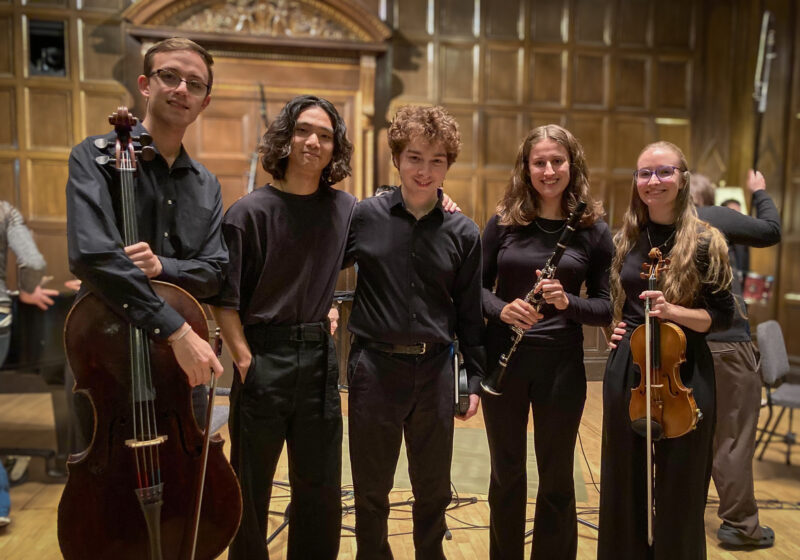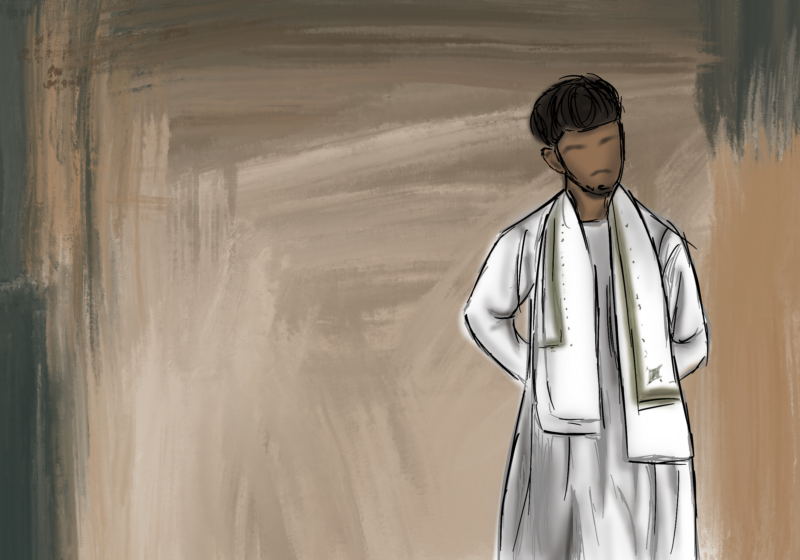All-freshman housing will replace all of the special interest housing on the Residential Quad next year. In addition, freshmen will no longer be able to live in special interest housing as a result of the Freshman Housing Implementation Committee?s recent decision.
This decision counters the Residential College Com-mission?s spring 1999 recommendations, which praised special interest housing as ?the cornerstone of the present-day campus community.?
For all freshmen to fit onto the quad, the special interest floors now housed there will have to move elsewhere. And for some freshmen to live in special interest housing, away from the rest of their class, would ?undermine a single principle of residency,? said Dean of The College William Green, committee co-chair.
But beyond logistical concerns, the decision springs from a desire to unify the freshmen as a class instead of immediately grouping them by interest.
?We are trying to create a common experience for a whole class. Dividing them among different interests would defeat the purpose,? said committee member and Professor of Political Science Gerald Gamm. ?Students arrive here and very quickly segment themselves into different groups. Connections [based on interests] will happen naturally.?
UR now sets aside 22 percent of its housing for special interests, compared to 9 or 10 percent at comparable colleges, according to Residential Life figures. By not having freshman residents, special interest groups believe they will grow smaller and may face recruitment, retention and quota problems.
?The council failed to recognize how damaging this will be to special interest housing,? said senior Damon Dimmick, chair of the FHIC?s special interest subcommittee and speaker of the Students? Association Senate. ?The administration claims to hold special interest housing in such high regard. They don?t realize this could be the worst thing for it.?
One possible compromise may be to introduce theme housing areas within the freshman housing model, said Logan Hazen, director of Residential Life.
Theme housing would offer freshmen ?a precursor to special interests while still participating fully in special interest housing,? Hazen said. ?Here?s a symbiotic relationship between the theme area and the special interest group. [The theme area] can be supported by the special interest group while the upperclassmen have easy opportunities for recruiting.?
Dimmick supports the idea, saying that ?a special interest node program, where interested freshmen are concentrated in one area, would be more successful? in terms of recruitment.
Difficulty getting numbers
He worried that special interests, who depend heavily on freshmen for new blood, won?t be able to recruit as effectively. ?They?re forced to come to the freshman quad to do programming, where they may be seen as outsiders or strangers,? he said.
Junior and SA President Meng Wang said freshman housing may widen the groups? opportunities, however. ?Centralizing freshmen on the quad gives [special interest groups] ability to do mass programming and gather associate members,? he said.
Freshmen ?can still get involved in special interest housing,? Green agreed. ?They just won?t be living there. After freshman year, they?ll be able to make a whole set of special interest decisions ? and they?ll be older and more experienced.?
The committee has not yet decided where special interests currently on the quad will move. Dimmick said he will fight to grant the groups non-accountability for at least three years ? that is, if the groups fail to meet their membership quotas, they won?t lose their housing space.
The Inter-Class Living Center finds itself in peril, its mission effectively destroyed by freshman housing. The hall, currently on the first floor of Gilbert, intermixes freshman and upperclassmen to facilitate interactions between different classes.
ICLC President and junior Patrick Theobald said he plans to ask for a special exception to let freshmen choose to live on ICLC.
If ICLC is not granted an exception, Theobald said he doesn?t see much point in the group continuing to exist. ?If we just became an upperclass service dorm, we?d be triply redundant with Tiernan and [the Community Living Center].?
Dimmick said ICLC is the most unfortunate victim of the freshman housing process. ?The continued existence of ICLC was an afterthought in the process. The committee members are willing to sacrifice ICLC for its greater goals,? he said.
The Tiernan Project, heralded for its development of freshman leaders, will also feel the impact. Sophomore and Tiernan President Romeo Galang said the loss of Tiernan freshmen will be detrimental to the college community at large.
?I could rattle off a list of names of Tiernan people who have become RAs, D?Lions, student government [members] ? active members of the community,? he said.
However, Gamm said that excluding freshmen from Tiernan may turn out positively because having a dorm geared toward community service could send the message that the rest of the campus does not have to become active in service.
?Tiernan does wonderful things, but we pay a price for separating out, especially among incoming freshmen, the people who do service,? Gamm said.
Galang said Tiernan would ideally like to move to a floor in Susan B. Anthony Residence Halls.
?Clearly we would like to have our freshmen, but it?s not going to happen. We?re concentrating on working within the system,? Galang said. ?We want to turn a problem into an enhancement. This is the year we get to reinvent Tiernan.?
Junior Ryan Walters, who has been living on the Foreign Language Floor for three years, said that because the floor relies on freshmen for half its membership, the decision is ?likely to have a devastating impact.?
The floor uses its many single rooms to entice members to join the floor, Walters said. ?Without freshmen to fill the doubles ? FLF might need to move off the floor it has held in SBA for the last 10 years in favor of suites in Towers ? which would hamper construction of the community that the university deems so valuable.?
Not all groups are pessimistic.
?It could be difficult to maintain complete residency ? but I feel with a continued active role in campus life, the floor will have a greater number of applications from students who were unable to live here their first year,? said sophomore Kevin Langlois, president of the Music Interest Floor.?
Greeks happy
The Greek groups on the quad seemed relatively optimistic about being relocated.
?A lot of guys are looking forward to it,? said junior Jason Bandel, president of Sigma Nu, now on the first floor of Crosby. A new location may allow the fraternity to ?do more programming and social activites,? he said.
A skeleton plan for the groups? new locations is expected by Sesquicentennial Weekend. Dimmick said his goal during the development of special interest housing?s future is to make sure the groups survive and thrive.
?It?s unlikely we can change the minds of the administration when they?re so set on this goal,? he said. ?Everyone around the table is trying to find the best for the university ? we just disagree on what that is.?





